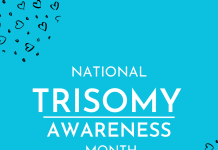Psssst … Instagram is harmful to mental health.

Instagram did research to determine its effect on teens. The results are disheartening, to say the least, compounded by the fact that none of us are actually surprised by them.
Instagram, and social media in general, negatively affect teens, their self-image, and their mental health. Teen girls are particularly susceptible to the influence.
“We make body image issues worse for one in three teen girls,”
The studies show the impact on teen girls as heightened compared to that of teen boys. As a mom of teen boys, I can vouch that Instagram undeniably affects them, as well. While it may not be as magnified, it shouldn’t be ignored.
So what do we, as parents, DO about this research that pretty much highlights what we already knew?
We could ban social media, but honestly, I don’t think that’s the answer. Banning it doesn’t teach kids how to interact with it. We are growing up in a digital age, and our kids need to know how to navigate their world.

I don’t have the answers. I wish that I did. But throwing my hands up in defeat isn’t an option, so I do the best that I can with the resources that I have.
Social media platforms come with age restrictions. For our kids to have Instagram, TikTok, or Snapchat accounts, they are supposed to be 13. Can I be honest? My daughter is 12, and she has some of these accounts. It isn’t hard for kids to figure out how to manipulate their birthdays to get access. What is one thing I SHOULD have done? I should have made her wait until she was 13. I justified it by saying that one year didn’t matter, but every ounce of maturity she could gain only helps.
But, for everything I’m doing wrong, there are things I am doing right. We monitor our kids’ phones. Most phones come with the ability to oversee screen usage. We have an additional app, appropriately called Screentime, to shut phones down in the evenings and set limits on how much screen time they can have. This app allows us to circumvent selected apps to shut everything down but still allow music, alarms, and school-related sites to work.
In addition to monitoring time spent in front of screens, we have the Bark app, which filters through the content on our kids’ phones and alerts us to any concerns. When we set up the filtering, we chose the topics we were most concerned about (drugs, alcohol, cyberbullying, profanity, etc.). When Bark stumbles across anything of concern, we are emailed. This allows us to monitor without having to sift through phones each night. I want our kids to learn to be digitally responsible, but I also believe they are entitled to some privacy.

While these measures help ease our kids into being aware and responsible while providing a safety net underneath them, they don’t address our kids’ mental health and self-esteem related to social media. For that, we have to open the lines of communication and not shy away from candid discussions. We shine a light on the shallow foundation of one’s online presence as much as we can. We often talk about how what they see isn’t “real” and how easy it is to manipulate content. It is also crucial to understand the permanence of things done online and that they can’t truly erase their digital footprints.
I am not naive enough to think that all of these measures will completely protect my children, but I believe that they help foster respect for social media and the digital world. Self-esteem and self-worth have to come from within, not from the distorted online stories that are simply that … made-up stories. Keep the communication flowing, and when needed, find other lines of communication that your kids can lean into, such as therapy.
Let’s arm our kids with the tools and training they need to inherit this world.










